I'm not a cryer at movies. I've sat, eyes completely unwatery, through countless movies known to make people collapse into emotional wrecks. I'm always able to keep a sense of emotional detachment. Except for Pixar movies. I haven't quite figured out why, but Pixar movies can make me cry to the point of needing an IV fluids bolus. They have a way of cutting through all pretenses of emotional disengagement, leaving me a blubbering mess.
For example, last weekend, my mother and I went to see , and as the film drew to a close we realized we couldn't yet get up and leave the theatre. We were both crying too hard! I don't mean just the simple one-at-a-time tear that sometimes comes with emotionally involving films. No, this was the kind of stifling guttural, sobbing sounds that can't possibly go unnoticed by everyone around you.
Pixar movies like always seem to hit adults harder than kids. We relate more to the feelings of lost opportunities, lost loved ones, and the simple aging process. I know they hit me harder now in my thirties than they did as a kid or teenager. My experiences are certainly different and more depression-tinged than they once were. Maybe there's something about animation that breaks through our defenses because our guards are lowered. Maybe they speak to something base and elemental in our very natures, speaking to something pure and untarnished in our very selves. Or, maybe Pixar is just really, really good at what they do.
Either way, with currently dominating the box office , it seemed a good time to look back at the top 5 times Pixar crushed our souls. Get your tissues at the ready.
I feel like this should go without saying, but spoilers below:
5. Toy Story 2 (1999): Jesse is loved, then tossed aside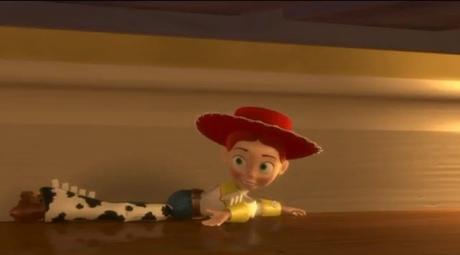
If Toy Story introduced us to the world of toys and the adventure they have when their owners are away, Toy Story 2 reminds us that bond has a built-in expiration date. After all, children grow up and toys become forgotten relics in the attic or items in a garage sale. Through a brief montage (and a heart-breaking Sarah McLachlan song), we see a toy's elation at being loved and anguish at being so casually disregarded. Aging and growing out of toys is a part of life, but it reminds us that as we reach milestones and move onto other life moments, we're casually tossing aside our childhoods and leaving our established families to begin new ones. We all leave something behind as we grow up and the idea that we abandon something whose entire existence revolves around bringing us joy transforms a developmental stage into an act of unbelievable cruelty.
4. Up (2009): A heart-breaking love story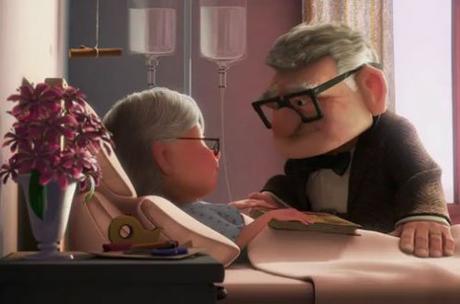
There's some debate as to whether or not Up is actually a good movie or just a good opening montage, and it's true the majority of the film's emotional gut punch comes in those opening minutes (and it's the reason it's on this list). We watch Carl and Ellie slowly age, planning a vacation they never get to take because life keeps getting in the way. It's lovely and heartbreaking because it reminds adults that we all make these grand plans we usually don't get to live out. Little things usually force us to break or alter our carefully-structured plans, and there will come a point when we lose the chance to do what we want. It reminds us that the ones we love aren't around forever, and it's a heartbreaking thought.
However, I think Up is a beautiful, fantastic film, from beginning to end, and that the opening is so strong it overshadows the film's other gut punch: Carl finding Ellie's scrapbook and realizing their life together became her great adventure. Carl spends much of the film feeling he'd tethered Ellie to a rote, mundane existence when she wanted to have adventures. Browsing through the once-blank pages of her scrapbook and finding the final "Thanks for the adventure" inscription shows him she loved the life they had together and reminds us we can find joy in the smallest of moments. So while the opening montage has the cry-o-meter edge, the scrapbook revelation will make the tears fall all over again.
3. Toy Story 3 (2010): Andy says goodbye to his toys (and childhood)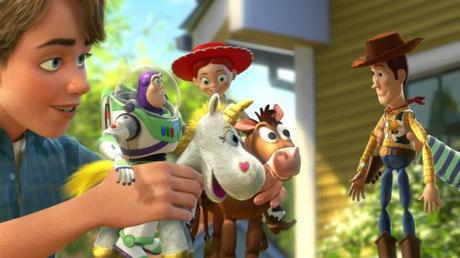
The first Toy Story came out when I was eleven. Toy Story 2, when I was fifteen. By the time Toy Story 3 hit theatres, I was in my mid-twenties. I mention this little timeline to help explain why this ending left me an emotional mess. It's about growing up and recognizing your childhood is behind you. I'd aged fifteen years since the first time I'd seen Woody and Buzz on the big screen, and having a movie remind me that both Andy's and my childhood was gone pierced me to the quick. It's more than that, though. Toy Story 's characters are pure and they only have one desire: to be loved and played with. They're like dogs with human egos. They're also relics of another era, simple action figures and Potato Heads. Even Buzz Lightyear, who in the first film was presented at the height of toy sophistication, feels old-fashioned and antiquated. These toys represent a pure kind of imagination-based play that doesn't seem as prevalent as it once did. Watching Andy introduce his toys to the new little girl who will love them like he once did reminds us that we have to grow up, but also of the nostalgic ache that accompanies such a transition.
2. Coco (2017): Music stirs memories in an aging great-grandmother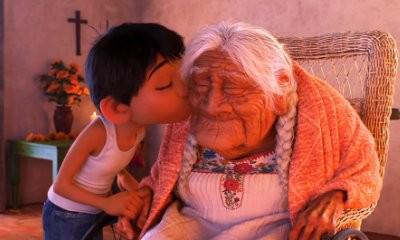
Coco is one of the rare Pixar films whose entire narrative feels steeped in melancholia. The film centers around late relatives reuniting with the unseeing living and the need for the living to remember those who have passed on. It also features the titular Coco, an old woman who is experiencing dementia and memory loss. The film's weaves sorrow around its narrative fringes long before it tugs at your heartstrings. When it builds to its emotional catharsis, Coco being serenaded with the song her father wrote for her as a child (appropriately titled "Remember Me") so she doesn't completely forget him out of existence, it's another Pixar moment that leaves anyone with souls in complete tatters.
Before you have a chance to recover from that emotional gutting, the film jumps forward a year. We see Coco has passed away, reunited with her mother and father in the Land of the Dead. Another Dia de los Muertos has begun, and they venture out into the world of the living and dance, unseen, with their surviving descendants. The tears that started with "Remember Me" continue to flow through "Proud Corazon." Treasure the first time you hear "Remember Me," because after the movie is over, you won't hear it in the same way.
1. Inside/ Out (2015): Bing-Bong asks Joy to take Riley to the moon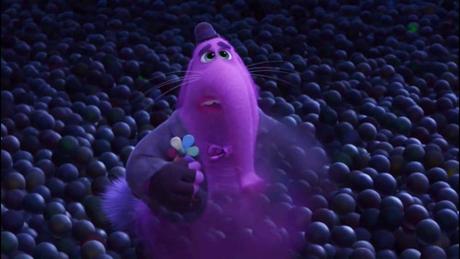
Okay, I'm picking up on a pattern here. With the exception of Up and Coco, many of Pixar's most affecting moments involve characters of pure, uncomplicated love being forgotten or choosing to leave for the sake of the character they love. Inside/Out gives us one of Pixar's most complicated landscapes: the mind of a young girl.
Centered around the emotions of Riley, the young girl in question, the film's central characters have names like "Sadness," "Joy," "Anger," "Fear," and "Disgust." On the surface, the film is about two of Riley's emotions (Sadness and Joy) getting stranded in the wrong part of Riley's mind and having to get back to "headquarters." Beneath that, though, the film examines how emotionally destructive it can be to pretend to be happy when you're actually depressed. It reminds children (and adults, come to that) that it's okay to be sad. It's part of your emotional makeup and to deny it will ultimately lead to apathy. I'm saying all this to point out that Inside/Out hits me particularly hard, because it attacks my emotional center on two different fronts:
On one level, you have the imaginary friend, Bing-Bong, previously promised the chance to reconnect with Riley (even as adults realize how futile that is since she's simply outgrown him), he then comes to realize he must sacrifice himself for Riley to have the chance to be happy again. If you can watch Bing-Bong utter, "take her to the moon for me," and not collapse into hysterical sobs, you may want to consult with your ophthalmologist.
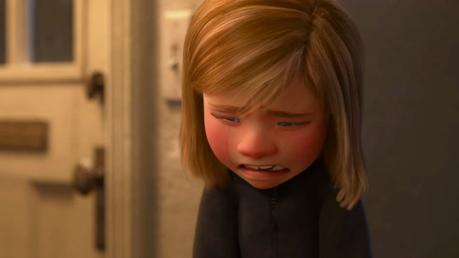
However, you're also confronted with a real-world heartbreak when Riley finally admits to her parents that she just can't pretend to happy anymore. She misses her old life, and she's tired of denying how unhappy she is. There's something so relatable about the idea that emotions can be held against us or that we're somehow wrong for feeling a certain way. The idea that a child feels forced to hide her true emotions is heartbreaking and immediately relatable to an adult viewer. The film hits both the poignancy of sacrifice for someone you love unconditionally and the relatable sense of having to hide how you feel because of others' feelings.
What about you? What are your biggest Pixar cries, and don't say "when they made Monsters University and you realized their golden era had passed"?

